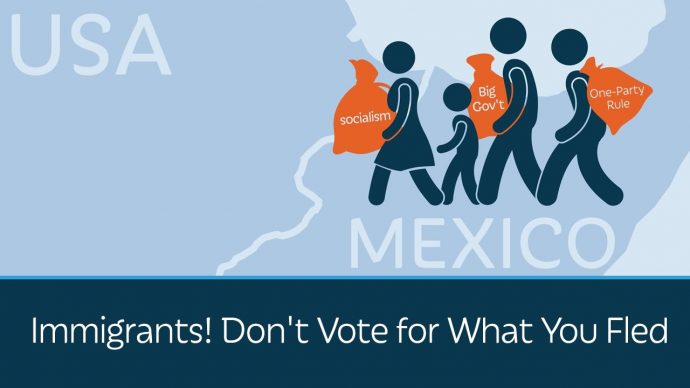In another terrific Prager University video, Gloria Alvarez attempts to teach the uninformed about the reality regarding what they fled. Here’s the introduction to the video:
Many of America’s legal and illegal immigrants fled nations that were ruined by corrupt politicians and failed government policies. But once here, they support the same things. Why? Gloria Alvarez, Project Director at the National Civic Movement of Guatemala, explains.
From the transcript:
I live in Guatemala and I work throughout Latin America. And I want to speak to the millions of fortunate Hispanic immigrants living in the United States – legally or not. I have a question for you: why do you support the same policies in the U.S. that caused you to flee your home country?
The policies I’m talking about are those that lead to a bigger and bigger central government. You know only too well that the more power the government has, the more corrupt it becomes. My home country, like most other nations in Central and South America, is very poor. Fifty-four percent of the population lives in poverty, and 13 percent lives in extreme poverty. Half of all children under five are chronically malnourished. Crippling government corruption is the norm. Opening a new business can take months, even years, because of a multitude of regulations that are designed to line the pockets of bureaucrats. So, the cost is much too high for the average citizen. Quite simply, unless you’re politically connected in Guatemala, you probably want to leave.
And in the last 20 years, many Guatemalans have left—or, to put it more honestly, they fled. The fortunate ones reach the United States, the freest and wealthiest nation in human history. There are at least 1 million Guatemalans living in the U.S.
Nearly every Mexican and Central and South American immigrant in the United States, whether they immigrated legally or illegally, moved or fled to the U.S. for the same reasons—economic opportunity and the freedom to shape their own lives.
Read more: Prager University

